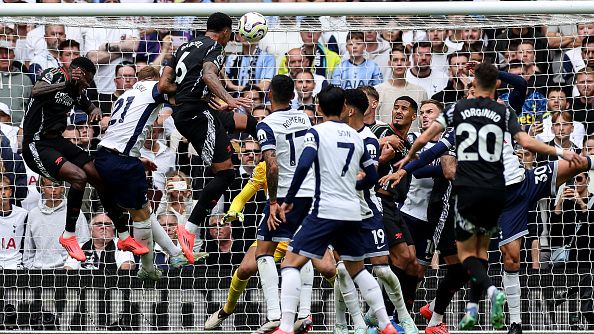Premier League Set-Piece Rules Change: Clubs Face New Challenges
Premier League set-piece rules are taking center stage as referees prepare to enforce stricter guidelines on defensive holding and simulation. This adjustment, confirmed ahead of the new season, has sent a ripple through top-flight clubs, forcing managers and players alike to reconsider their approach to dead-ball situations. The changes arrive following direct feedback from clubs, signalling a league-wide push for greater fairness and integrity in the game.
Premier League Set-Piece Rules: What’s Changing?
At the heart of the new Premier League set-piece rules is a clear mandate: referees will clamp down on all forms of holding, pulling, and excessive physicality during corners and free-kicks. Defenders who rely on grabbing opponents or blocking their movement will face increased scrutiny and potentially more penalties awarded against them. The intent is to reward attacking teams and discourage cynicism in penalty areas, making play at set-pieces more open and dynamic.
Crackdown on Simulation and VAR Involvement
Alongside tougher enforcement of holding, simulation—commonly known as diving—will also be targeted by match officials. Players exaggerating contact or attempting to deceive referees are set to be penalized more regularly. Importantly, all contentious decisions regarding set-piece incidents will continue to be reviewed by VAR, offering an additional layer of oversight to ensure accuracy and consistency across the league.
Impact on Teams and Tactics
These Premier League set-piece rules force clubs to adapt both defensively and offensively. Defenders must refine their marking techniques, while attacking players may find more space and opportunities in the box. Coaches are expected to spend more time on set-piece drills, emphasizing clean defending and smart positioning. The changes could lead to an increase in goals from set-pieces and a reduction in controversial penalty area incidents.
Feedback from Clubs and Officials
This directive comes after clubs voiced concerns to the league’s officiating body, citing frustration over inconsistencies and perceived unfairness in set-piece battles. The Premier League Referees’ Panel has listened, promising a uniform approach to clamp down on holding and simulation. The move is designed to align the English top flight with international standards and keep pace with evolving interpretations of the Laws of the Game.
How Will VAR Be Used Under New Set-Piece Rules?
VAR will play a crucial role under the new Premier League set-piece rules, reviewing instances of suspected holding or simulation that lead to penalties or disallowed goals. While the on-field referee remains the primary decision-maker, VAR offers essential support, ensuring that major errors are corrected and player behaviour is regulated fairly. Fans can expect more transparency in how set-piece incidents are managed throughout the campaign.
Premier League Set-Piece Rules: What Fans Can Expect
For supporters, the new enforcement promises a more fluid and entertaining brand of football. With less grappling in the box and a crackdown on theatrics, matches could see an uptick in goal-scoring opportunities and fewer incidents that spark controversy. The Premier League hopes these changes will reinforce its reputation as the world’s most exciting and competitive league.
Looking Ahead: Adaptation and Opportunity
As the new Premier League set-piece rules come into effect, teams that adjust quickly will reap the rewards. Expect to see innovative set-piece routines, improved discipline, and perhaps a shift in how referees are perceived by players and fans alike. Time will tell if the crackdown delivers on its promises, but one thing is certain: the spotlight will be firmly on penalty area duels this season.
Opinion: A Timely and Necessary Evolution
These Premier League set-piece rules represent a much-needed step towards cleaner, fairer competition. By addressing persistent issues around holding and simulation, the league is setting a new standard for integrity and entertainment. While some teams may initially struggle to adapt, this move ultimately benefits both players and fans, ensuring that the Premier League remains at the forefront of global football innovation. For those looking to stay updated on further developments, visit our homepage for more news.
Your global gateway to nonstop football coverage:
News Goal
Share this content:

